"It can be quite the emotional rollercoaster, ranging from the joy of a horse being rehomed to the perfect long-term home, to the pain of seeing a severely neglected foal lose its battle to live."
Posted on 15/11/2024
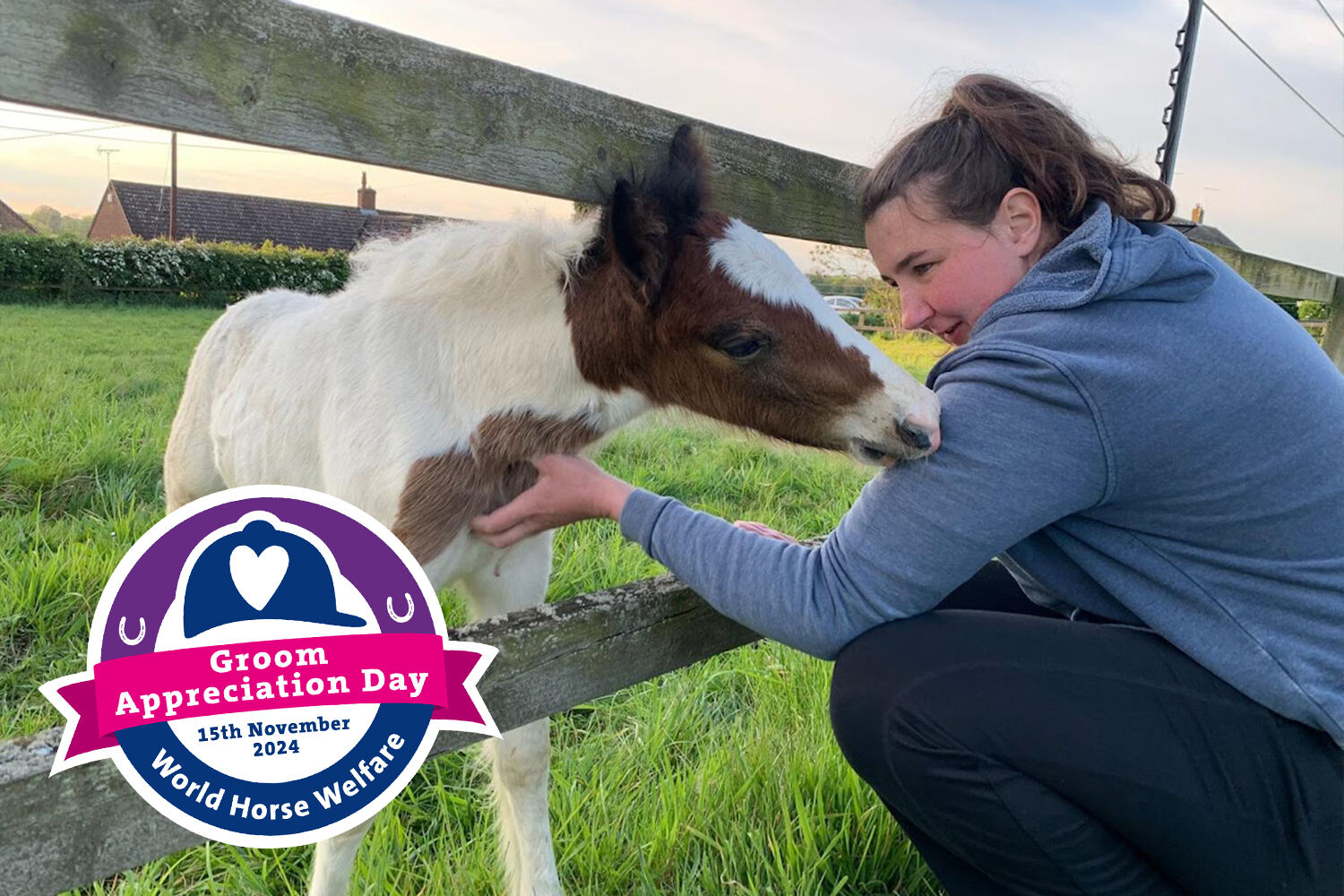
Today we celebrate our inaugural World Horse Welfare Groom Appreciation Day!
Following our Stamp Out Suffering appeal, we have received an overwhelming amount of wonderful messages from our supporters to our grooms, thanking them for their hard work and dedication to the horses in our care.
We would like to join our supporters in thanking all of our wonderful grooms for the incredibly special and difficult work they do – particularly as we approach winter when they work even harder to care for our horses in the dark and cold. We couldn’t rescue and rehabilitate abused and neglected horses without their passionate dedication and commitment to the cause.
Across our four rescue and rehoming centres, our fabulous team of 46 grooms changes the lives of horses, ponies, donkeys, mules and foals every single day. On Groom Appreciation Day we put them firmly in the spotlight to celebrate their invaluable and inspiring work.
Our diverse team of highly skilled grooms have joined the World Horse Welfare family from a broad range of backgrounds within the industry, some coming from high-level competition and racing yards, and some with experience in other rescue and rehoming organisations, veterinary hospitals, and riding schools.
Our grooms work methodically, often having to deal with some very challenging cases which they approach with compassion and patience working closely with vets, farriers and physiotherapists to implement treatment plans, administer medication, provide round-the-clock care, and retrain horses using science-based, welfare-friendly methods. As a charity, we take great pride in being realistic, compassionate and forward-thinking and our team shares these values.
Work in rescue and rehabilitation is often tough and emotionally draining, and each and every one of our grooms has spent countless hours nursing a sick animal that might not have recovered, and yet they continue their work with dignity and courage. They work outside in all weathers, contending with endless amounts of mud with professionalism and humour.
They are our often-unsung heroes, literally changing horses’ lives for the better every day.
We caught up with Kathryn, a Groom at our Hall Farm Rescue and Rehoming Centre, to find out more about what life as a groom is really like here at World Horse Welfare.
Tell us a bit about yourself…
Hi, I am Kathryn Coombes, and I have been a Groom at Hall Farm for over two years.
How did horses first come into your life?
My first interaction with horses was as a child, when I used to regularly visit and fuss the Anglo-Arab stallion who lived behind my grandparents’ house whenever I would go to visit.
Can you tell us a bit about life as groom at Hall Farm? Every day must be very different! There must be moments of sheer joy, utter heartbreak and everything in between.
We carry out a large variety of tasks as a groom, from mucking out to field checks and seemingly never-ending ‘ragworting’, to horse training – to name just a few. It can be quite the emotional rollercoaster, ranging from the joy of a horse being rehomed to the perfect long-term home, to the pain of seeing a severely neglected foal lose its battle to live.
When you get to work what is the first thing you do?
I feed the horses who are overnighting on the main yard, which currently includes a very cute, abandoned foal called Noodles!
When you finish work, what is the last thing you do?
I read the “bible” (a folder which includes all the days important updates) which summarises any important information or changes that happen over the day, including any new health issues and current management plans, so the entire team is aware and up to date.
At the moment which horses are you looking after and what are their stories?
I am responsible for the handling and training of eight horses at the moment.
Maverick arrived as an entire 4-year-old stallion. He has since been gelded and learnt his basic handling and he is a very cuddly boy who will be going to a lovely home shortly.
Big Mumma is a cob who came in from the Harefield Horses’ case (insert link to YouTube video). She arrived as unhandled and semi-feral but is now coming round nicely after realising that not all people are bad, thanks to lots of scratches!
Midnight is a 2-year-old beautiful pale skewbald who was born on our farm to Philly, who arrived pregnant. Midnight is now looking for a home on our rehoming website.
Molly Malone is a pretty skewbald cob who is part of the Dover 26 group. After her arrival she gave birth to a beautiful filly called Emily.
Defender is also part of the Dover 26 group and was an entire colt on arrival, who did not want anything to do with people. Fortunately, food was the way to his heart, and he is now very friendly with everyone he meets and is ready for rehoming!
I am also responsible for the care of a prosecution horse who we look after on behalf of the RSPCA until their case is concluded.
Lastly, Bridget and Velvet are a pair of Thoroughbreds who have been transferred from our Glenda Spooner Farm down in Somerset. We have a large number of smaller cob type ponies at Hall Farm so it is good to have some Thoroughbreds to help eat down our grass.
How does it feel to be able to make a difference to the lives of vulnerable horses every day?
It is very rewarding to know you are having a positive impact on the horses’ lives.
Can you tell us some interesting things we might not know about a World Horse Welfare groom?
We’re a little obsessed with the tidiness/levelness of the yard’s muck heap! Our hay nets are colour coded by weight and at the moment, we are currently using 75 a day!
What is the most rewarding thing about being a groom?
Seeing horses progress whether in their training or in general condition.
What is your most challenging day-to-day experience as a groom?
Having to accept that there will be some ongoing long-term effects of neglect on horses no matter how well cared for they are after arrival.
As we head into winter, what are your top tips for caring for horses in these colder, wetter months?
Monitor weight and fat score regularly. Be prepared for abscesses in feet and treating mud fever.
How do you cope with the winter and working outside in all weathers?
I have an excellent long length winter coat, which combined with good wellies, reliable waterproof trousers and a thin headband, to keep ears warm under my riding hat, keep me warm and dry when cracking ice off water tanks. But most of all a positive attitude helps!
Can you sum up what it’s like to be a groom in three words?
Fulfilling. Varied. Challenging.
Without our grooms, we wouldn’t be able to rescue more than 300 horses a year. If you would like to join the hundreds of supporters who have already sent a message of support to our grooms, you can email us via [email protected]
If you have enjoyed reading Kathryn’s blog and would like to hear about what life as a groom is like at our other farms, please click the links below to find out more.
Emily, Yard Supervisor at Penny Farm
Abi, Senior Groom at Belwade Farm
Nicole, Rehabilitation Groom at Glenda Spooner Farm
Topics
Related Blog Posts
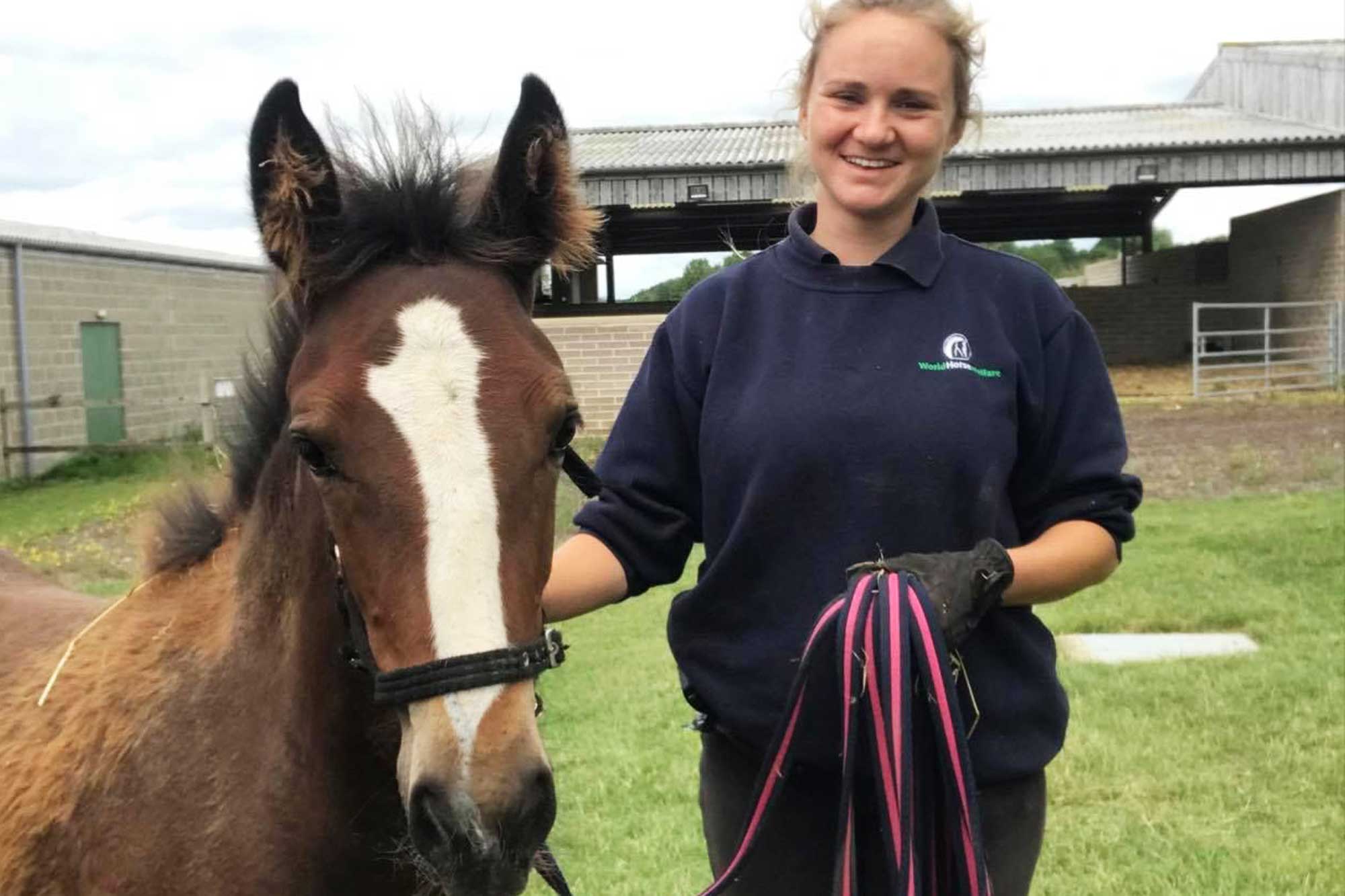
Buena’s story – how our foals are cared for from birth to rehoming
Senior Groom Steph introduces lovely filly Buena and explains how the team care for foals from birth right through to finding them a loving home for youngster handling.
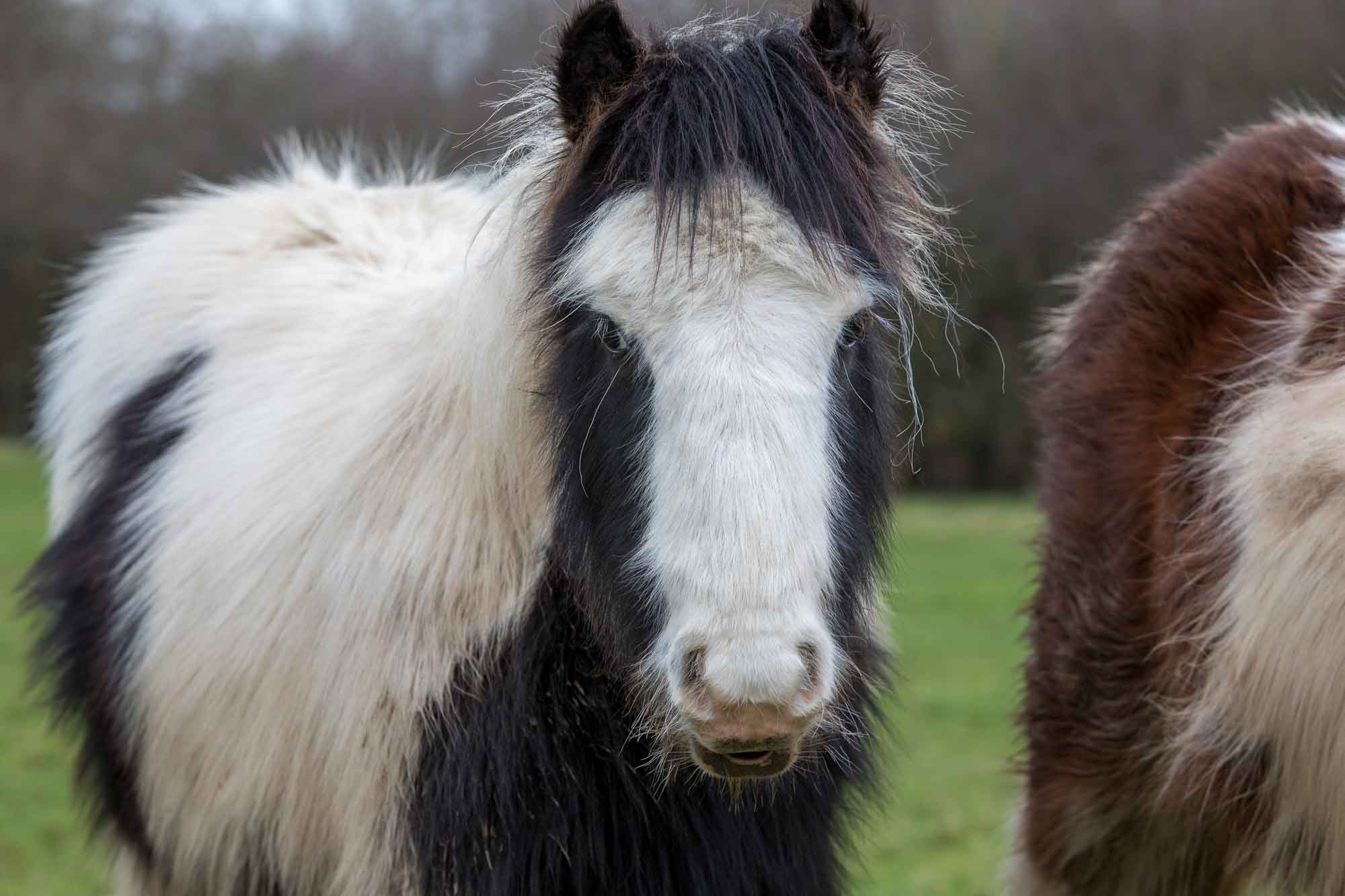
Behind the scenes: the first few months as a World Horse Field Officer
Find out what really goes on behind the scenes as a World Horse Welfare Field Officer.
Recommended News Articles
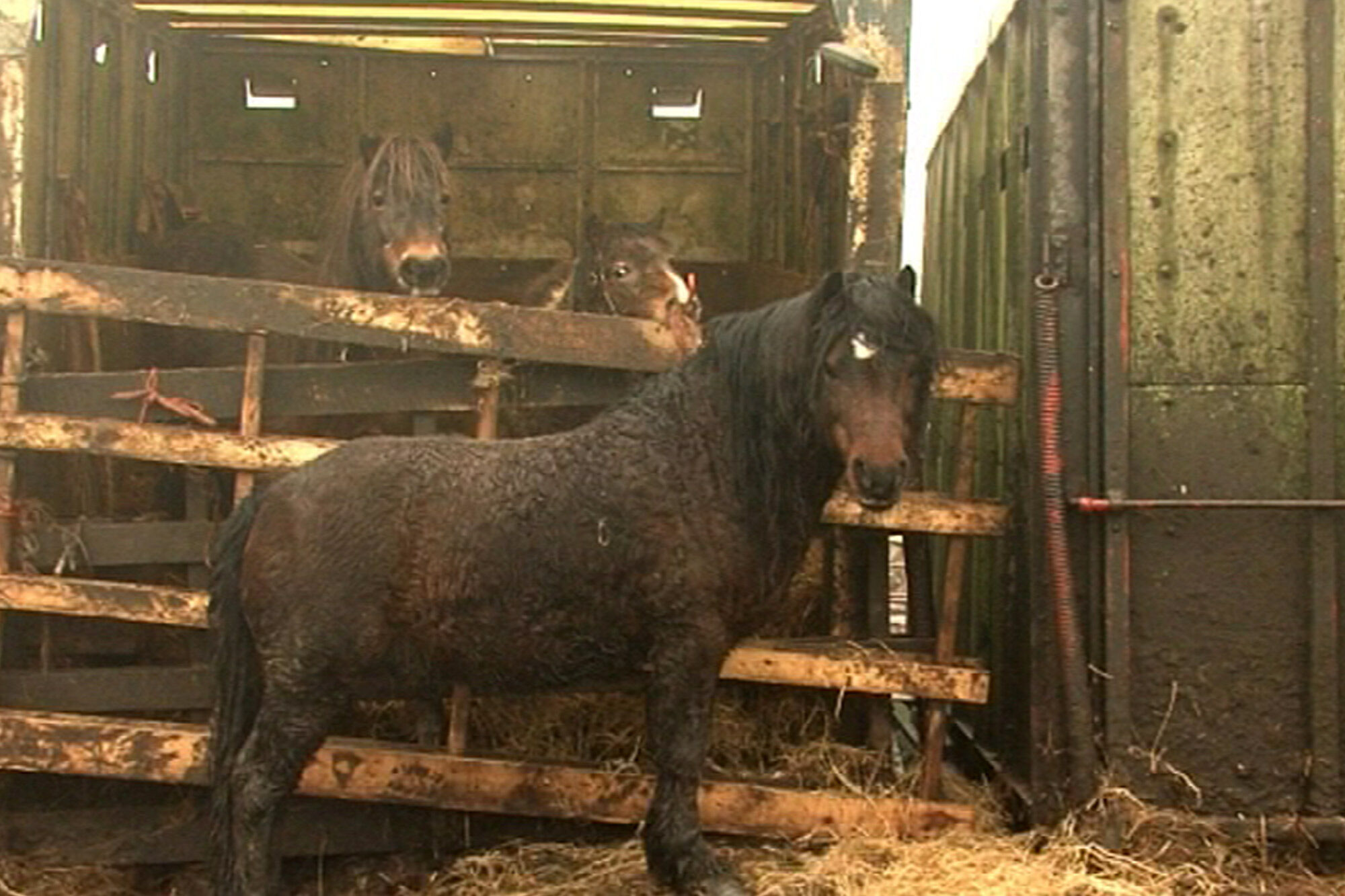
20 horses rescued from a life of misery
Twenty ponies rescued from a scrap yard can finally look forward to a happy and secure future, thanks to the hard work of World Horse Welfare.
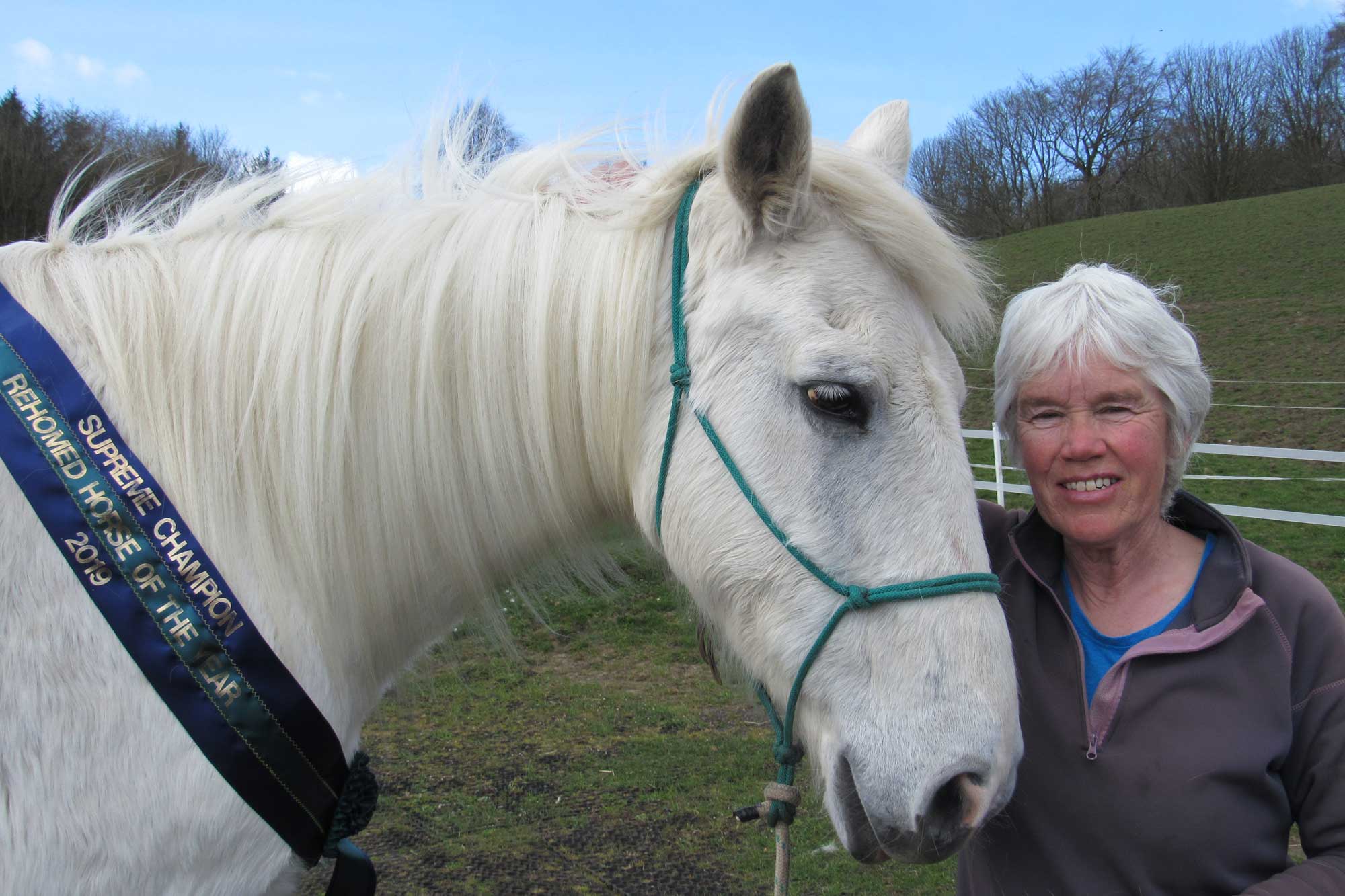
Fond farewell to Rehomed Horse of the Year 2019 Supreme Champion
A fond farewell has been said to Rehomed Horse of the Year 2019 Supreme Champion and family friend Ru after more than 25 years together.
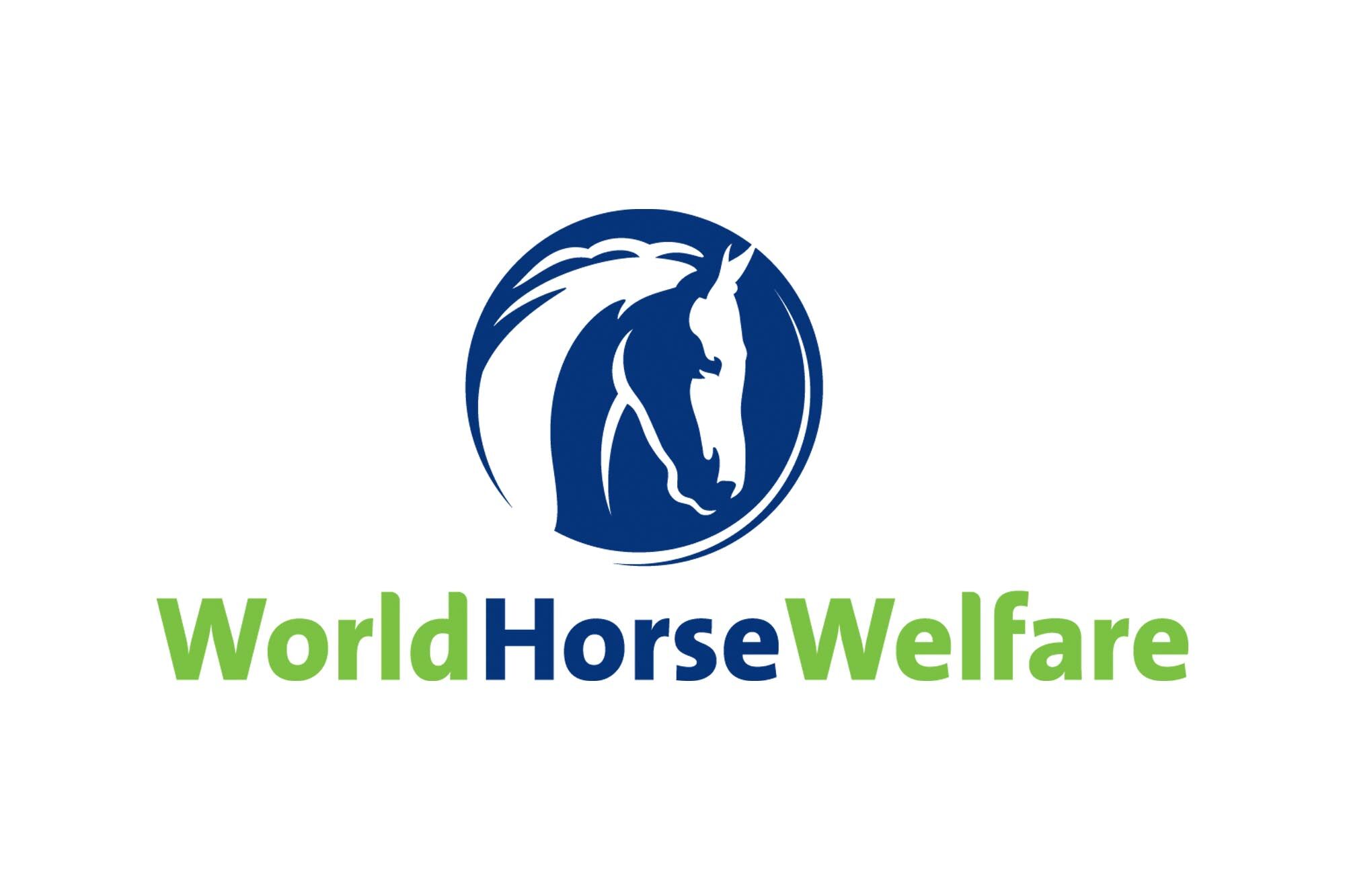
How is coronavirus impacting World Horse Welfare’s work in the UK?
Find out how the current situation in the UK is affecting our work helping horses in light of the latest Government advice on coronavirus.
Enjoy reading stories like this?
Join over 55,000 other horse lovers and sign up for our email newsletter

Join over 55,000 other horse lovers and sign up for our email newsletter
Sign me up now